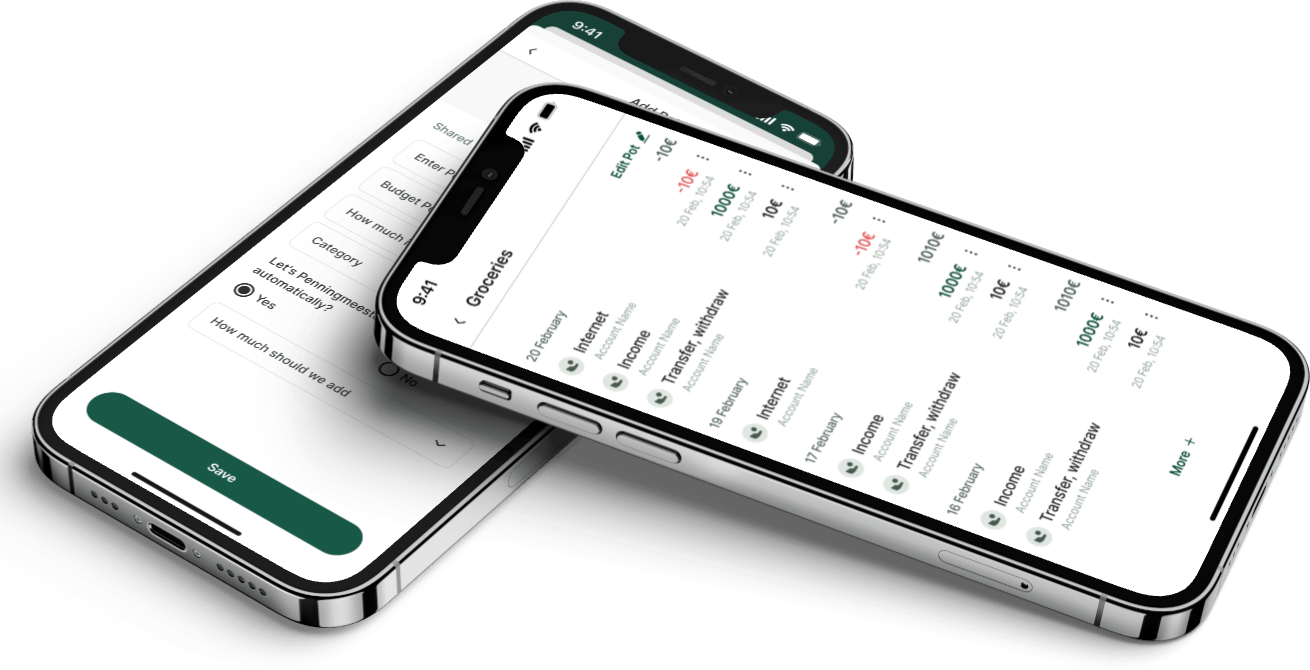Welcome to the Salary Side
Graduating is wild. One day, you’re calculating how many instant noodles you can buy with €10. Next, your account balance shows a full-time salary, and you feel rich. Briefly.
Because two weeks later, the money’s… mostly gone. Rent claimed a third. A night out turned into three. Groceries were pricier than expected. And somehow you signed up for another subscription you’ll probably never use.
This isn’t failure. This is the financial whiplash nobody warned you about. It’s the messy, modern rite of passage from “barely scraping by” to “wait, where did it all go?”
The Invisible Transition from Student Life to Adult Money
Let’s be real. You weren’t taught how to manage a salary. Not in school, not in uni. And while your bank app shows what you spent, it doesn’t help you understand why you spent it or how to change it.
Your paycheck isn’t the goal. It’s the starting gun.
And budgeting? That’s not punishment. It’s performance gear. It’s what helps you stretch your salary in ways that actually support your goals, not just your expenses.

So... Where Did That First Paycheck Go?
Let’s say you’re earning a decent entry-level salary in the Netherlands — around €2,800 net per month (which is fairly standard for a full-time job in your mid-20s).
You feel rich on payday. And by the 15th, you’re wondering how the hell you’re back to eating toast for dinner.
Let’s break it down like a real adult would (but in plain English):
Category | Average Monthly Cost (€) |
|---|---|
Rent (solo or shared apt) | €1,000–€1,400 (Amsterdam? €1,600+) |
Groceries | €250–€350 |
Health Insurance | ~€140 |
Transport (bike/train) | €90–€120 |
Phone bill | €20–€35 |
Internet (shared or solo) | €25–€40 |
Going Out / Social Life | €150–€250 (1 pub night = €40 easy) |
Subscriptions & Apps | €20–€60 (Spotify, Netflix, etc.) |
Clothing (yes, it adds up) | €50–€100/month (avg across the year) |
Grand total? Easily €1,750–€2,400.
Which means you technically have €400–€1,000 “left.”
But what actually happens?
Impulse buys. That shirt from ASOS. That second round of drinks. Forgotten subscriptions. The birthday present you didn’t budget for. Groceries you let rot. Oh, and taxes on your freelance side gig? You forgot to save for those, too.
Suddenly, you’re left wondering why your “adult salary” feels like pocket change.

Do not save what is left after spending, but spend what is left after saving.
~ Warren Buffet
Here’s How to Not Let That Happen Again
Set aside a flat % on payday (10–20%) into a separate account. Call it “future me” if that helps.
Check your bank app like it’s your crush’s Instagram — but with less judgment.
Make a “Dumb Purchases” category and track it without shame.
Build a “Surprise! Life!” buffer — even €50/month helps you avoid that panic spiral when life hits back.
You don’t need a perfect system. Just a visible one.
Apps like NeroBudget help, but you can even start in Notes. Just start.
Because the biggest threat to your first paycheck?
Not Klarna. Not the pub. Not the overpriced hummus.
It’s thinking you don’t need a plan.

You’re Going to Mess It Up, That’s Normal
You’ll forget city taxes. You’ll overspend during King’s Day. You’ll lend a friend €50 and never see it again.
That’s life. The goal isn’t perfection. It’s progress.
Start by noticing patterns. What do you always underestimate? Where do you tend to go overboard? Adjust your plan a little each month, and you’ll start building awareness that sticks.
If you want a tool to help track this without making you feel guilty, you can use something like Excel or even NeroBudget. Nero quietly flags overspending, helps you tweak categories, and suggests ways to smooth out the bumps—but only if you want the help.
The Psychology of “I Deserve This”
Here’s a tough truth: most budgeting struggles aren’t about math. They’re about emotion.
After a long week or a stressful day, your brain says, “I deserve something.” And you do.
But if every impulse to spend becomes a form of stress relief, the system starts to work against you.
We’re not here to shame you for buying a €6 oat milk latte. But it will feel better if that spending is part of your plan, not a reaction you regret later.
Intentional spending always feels better than accidental spending.

What You Can Do With That First Paycheck
Let’s say you’re 24. You just started a full-time job. Your rent is high, your student debt is real, and your friends are booking flights like it’s no big deal.
You want to save, but not starve. You want to enjoy life, but not feel like your bank account is trolling you.
Here’s where to start:
List your fixed monthly costs – rent, subscriptions, transit, insurance
Add your flexible costs – food, going out, hobbies
Set aside a little for “chaos” – unexpected costs always show up
Then ask:
What’s the one thing I want to be more consistent about?
What spending always surprises me?
Even if you start in Excel or a notebook, that clarity alone is a huge win. You don’t have to do it all at once. Just track for a few weeks and learn what your real patterns look like.
And if at any point, you want a smart tool that tracks those habits with less effort, NeroBudget can help. It’s not required. But it’s there if you’d rather not do the heavy lifting.
Final-Thoughts:-Your-Paycheck-Doesn’t-Define-You
The world might try to convince you that earning money means you’ve made it.
But earning without clarity is just movement, not progress.
Budgeting isn’t about cutting everything back. It’s about choosing direction.
It’s not about guilt. It’s about growth.
It’s not a spreadsheet. It’s a story, and you get to rewrite it every month.
You won’t get it perfect. Nobody does.
But when you finally look at your account and actually know where your money’s going, and why?
That’s the moment you stop feeling behind.
And start feeling in control.




